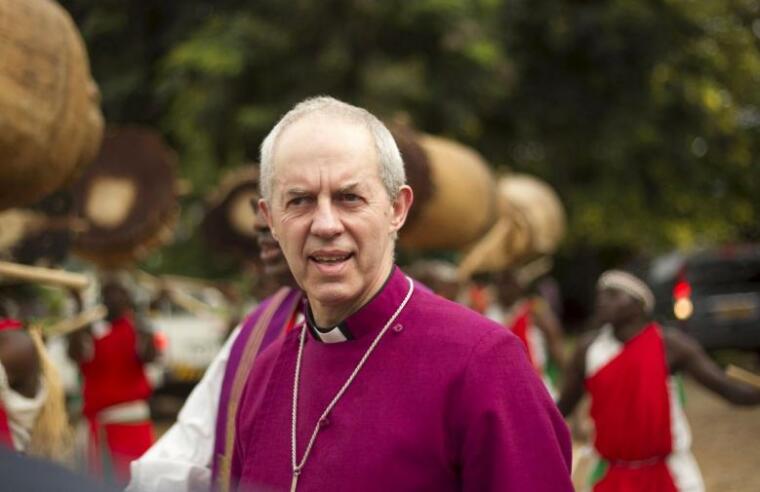Archbishop of Canterbury says he saw God's glory among persecuted Christians

The Archbishop of Canterbury called on people who wish to see the glory of God to reflect on the suffering of persecuted Christians.
In his Christmas message at Canterbury Cathedral, the Most Rev. Justin Welby noted that the year 2016 was "awash and fear and division" and said that people have put their trust in the wrong things. He pointed out that progress has not resulted in economic justice and glory.
The archbishop said that he found evidence of God's glory in oppressed believers. He spoke about people whose lives have been changed by God.
"Let me tell you about a bomb-injured woman in Pakistan, bereft of her youngest child in the blast, who said, 'One thing we know, Jesus really is the Good Shepherd,'" he narrated.
"And a lonely elderly woman in London, and a trafficked teenager in Watford, both of whom spoke recently at a carol service - they have seen the glory of God in Jesus and he has brought transformation to their lives," the archbishop continued.
He concluded his message by pointing out that God's glory can only be found in Jesus Christ.
"How then do we find glory? The only place and person who can bring glory to us is the child of Bethlehem who became the victim on the cross," he said, according to Christian Today.
Meanwhile, former UKIP leader Nigel Farage has urged his Twitter followers to ignore the all of the "negative" messages from the archbishop.
Welby did not mention any specific event in his Christmas message, but he spoke about uncertainty and division at a year when the British unexpectedly voted in favor of Brexit. Welby's previous comments about Brexit has been perceived by eurosceptics as critical.
The archbishop has previously criticized Farage for saying that the sexual assaults committed by migrants were the "nuclear bomb" of the EU referendum. He accused the former UKIP leader of pandering to the fears and prejudices of the people, which gave them an excuse for racism.
Welby has allowed a Syrian refugee family to stay in the grounds of Lambeth Palace while also defending people who fear migration. He said that it was "outrageous" to label people who are concerned about the impact of immigration as racist, and he contended that there was "genuine fear" about the impact on housing, jobs, and the National Health Service.
 Christians don't have to affirm transgenderism, but they can’t express that view at work: tribunal
Christians don't have to affirm transgenderism, but they can’t express that view at work: tribunal Archaeology discovery: Medieval Christian prayer beads found on Holy Island
Archaeology discovery: Medieval Christian prayer beads found on Holy Island Presbyterian Church in America votes to leave National Association of Evangelicals
Presbyterian Church in America votes to leave National Association of Evangelicals Over 50 killed in 'vile and satanic' attack at Nigerian church on Pentecost Sunday
Over 50 killed in 'vile and satanic' attack at Nigerian church on Pentecost Sunday Ukrainian Orthodox Church severs ties with Moscow over Patriarch Kirill's support for Putin's war
Ukrainian Orthodox Church severs ties with Moscow over Patriarch Kirill's support for Putin's war Islamic State kills 20 Nigerian Christians as revenge for US airstrike
Islamic State kills 20 Nigerian Christians as revenge for US airstrike Man who served 33 years in prison for murder leads inmates to Christ
Man who served 33 years in prison for murder leads inmates to Christ


 Nigerian student beaten to death, body burned over ‘blasphemous’ WhatsApp message
Nigerian student beaten to death, body burned over ‘blasphemous’ WhatsApp message 'A new low': World reacts after Hong Kong arrests 90-year-old Cardinal Joseph Zen
'A new low': World reacts after Hong Kong arrests 90-year-old Cardinal Joseph Zen Iran sentences Christian man to 10 years in prison for hosting house church worship gathering
Iran sentences Christian man to 10 years in prison for hosting house church worship gathering French Guyana: Pastor shot dead, church set on fire after meeting delegation of Evangelicals
French Guyana: Pastor shot dead, church set on fire after meeting delegation of Evangelicals ‘Talking Jesus’ report finds only 6% of UK adults identify as practicing Christians
‘Talking Jesus’ report finds only 6% of UK adults identify as practicing Christians Mission Eurasia ministry center blown up in Ukraine, hundreds of Bibles destroyed: 'God will provide'
Mission Eurasia ministry center blown up in Ukraine, hundreds of Bibles destroyed: 'God will provide' Church holds service for first time after ISIS desecrated it 8 years ago
Church holds service for first time after ISIS desecrated it 8 years ago Burger King apologizes for 'offensive campaign' using Jesus' words at the Last Supper
Burger King apologizes for 'offensive campaign' using Jesus' words at the Last Supper Uganda: Muslims abduct teacher, burn him inside mosque for praying in Christ’s name
Uganda: Muslims abduct teacher, burn him inside mosque for praying in Christ’s name